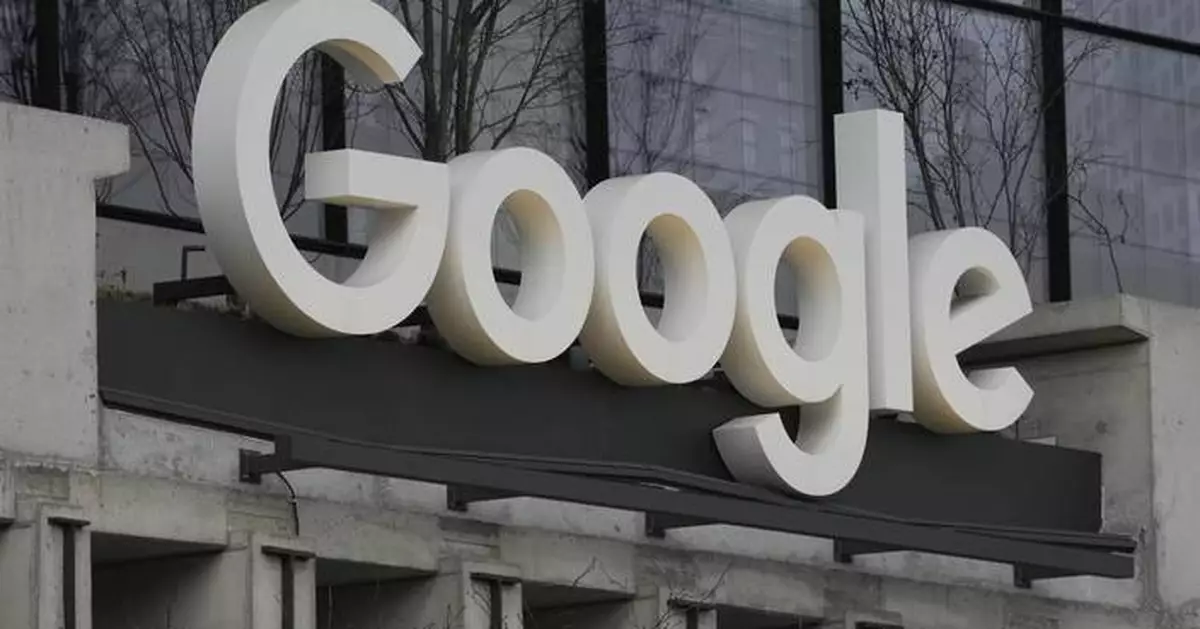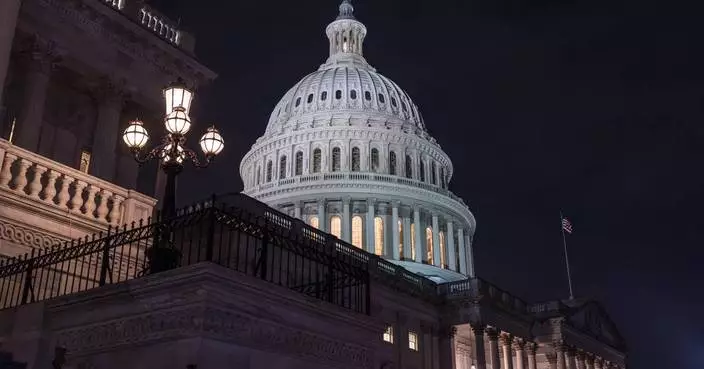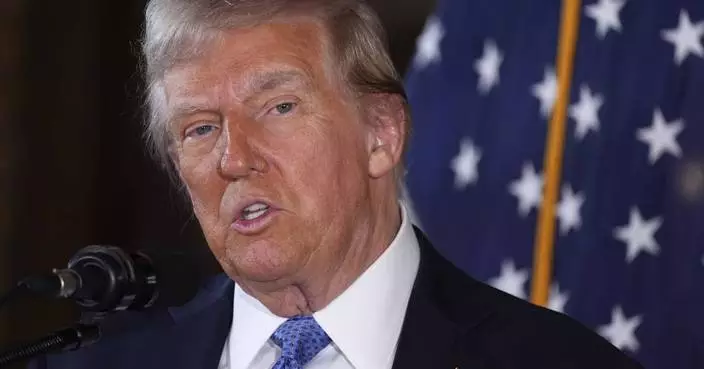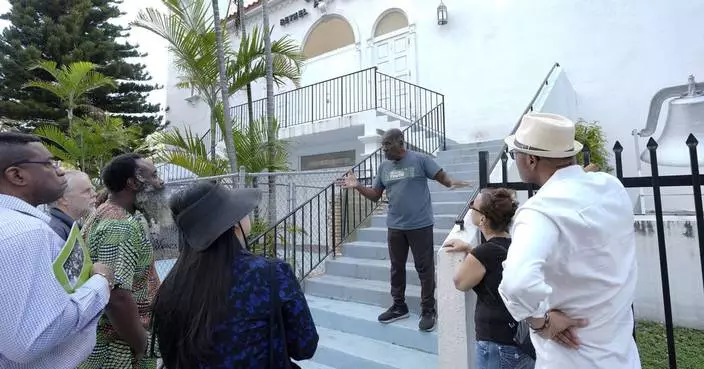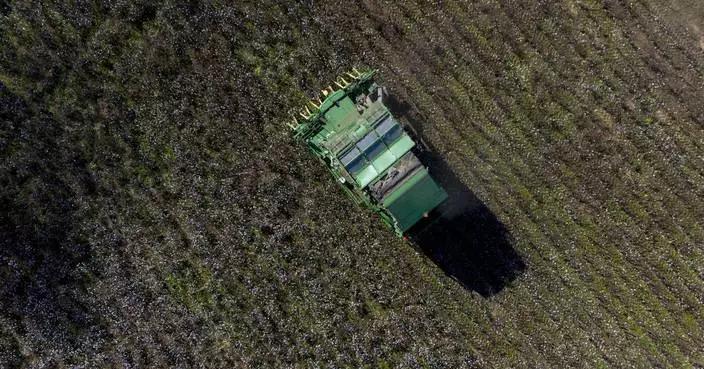The U.S. Department of Justice is considering asking a federal judge to force Google to sell parts of its business in order to eliminate its online search monopoly.
In a late court filing on Tuesday, federal prosecutors also said the judge could ask the court to open the underlying data Google uses to power its ubiquitous search engine and artificial intelligence products to competitors.
Tuesday’s filing is the first step in a monthslong legal process to come up with remedies that could reshape a company that’s long been synonymous with online search.
“For more than a decade, Google has controlled the most popular distribution channels, leaving rivals with little-to-no incentive to compete for users,” the antitrust enforcers wrote in the filing. “Fully remedying these harms requires not only ending Google’s control of distribution today, but also ensuring Google cannot control the distribution of tomorrow.”
To that end, the department said it is considering asking for structural changes to stop Google from leveraging products such as its Chrome browser, Android operating system, AI products or app store to benefit its search business.
Prosecutors also zeroed in on Google's default search agreements in the filing and said any remedy proposals would seek to limit or ban these deals. These deals lock in Google services and products as the automatic choice presented to consumers, such as when Safari browsers on Apple iPhones use Google's search engine.
Lee-Anne Mulholland, Google’s vice president of regulatory affairs, said in response to the filing that the Department of Justice was “already signaling requests that go far beyond the specific legal issues" in this case. “Government overreach in a fast-moving industry may have negative unintended consequences for American innovation and America’s consumers.”
U.S. District Judge Amit Mehta ruled in August that Google's search engine has been illegally exploiting its dominance to squash competition and stifle innovation. He has outlined a timeline for a trial on the proposed remedies next spring and plans to issue a decision by August 2025.
Google has already said it plans to appeal Mehta’s ruling, but the tech giant must wait until he finalizes a remedy before doing so. The appeals process could take as long as five years, predicts George Hay, a law professor at Cornell University who was the chief economist for the Justice Department’s antitrust division for most of the 1970s.
In November, federal prosecutors will submit a more detailed proposal on tackling Google’s anticompetitive practices. Google in turn will offer its own ideas for how to make fixes in December. Prosecutors will then make their final proposal in March 2025.
Google has been facing intensifying regulatory pressure on both sides of the Atlantic, with European Union antitrust enforcers also suggesting that breaking up the company is the only way to satisfy competition concerns about its digital ad business.
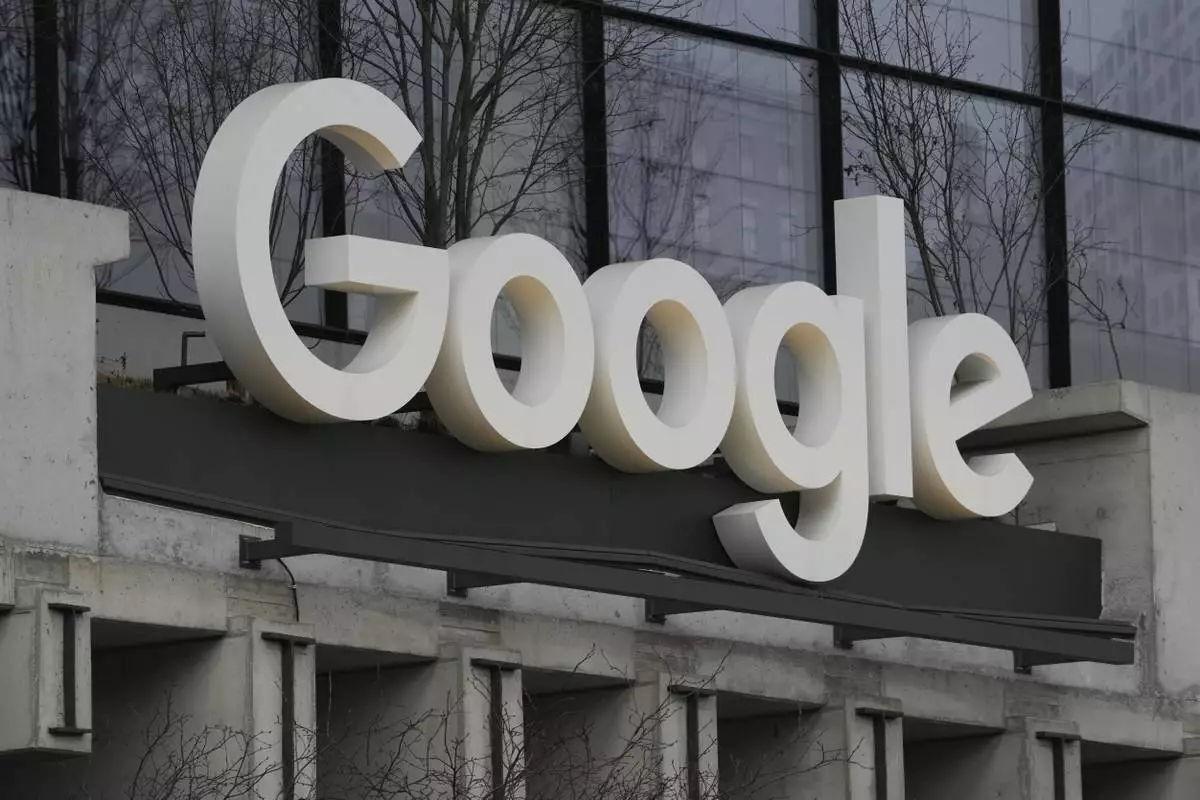
FILE - The Google building is seen in New York, Feb. 26, 2024. (AP Photo/Seth Wenig, File)
President-elect Donald Trump's billionaire ally Elon Musk played a key role this week in killing a bipartisan funding proposal that would have prevented a government shutdown, railing against the plan in a torrent of more than 100 X posts that included multiple false claims.
The X owner, an unelected figure, not only used his outsize influence on the platform to help sway Congress, he did so without regard for the facts and gave a preview of the role he could play in government over the next four years.
“Trump has got himself a handful with Musk,” John Mark Hansen, a professor of political science at the University of Chicago, said in an email. “Trump’s done this kind of thing before, blowing up a bill at the last minute. This time, though, it looks like he was afraid of Musk upstaging him. Now there’s a new social media bully in town, pushing the champion social media bully around.”
Hansen added: “We’ll see what Musk’s influence is when he runs up against reality — like when he proposes cutting off ‘wasteful’ spending for other people but not NASA contracts for Space-X.”
Musk’s objections to the 1,547-page omnibus bill included misinformation about congressional salaries, federal funding and public health preparedness, among other topics.
He alleged that the plan included a 40% raise for lawmakers. But the maximum pay increase possible through the proposal would have been 3.8%, according to the Congressional Research Service.
One way that members of Congress can receive a pay raise is through automatic adjustments that go into effect unless denied by law. Most members make $174,000 per a year after their last increase of 2.8% in 2009. Congressional leadership is the exception, with the Speaker of the House earning the most at $223,500 annually.
The rejected bill struck a section from a previous appropriations act that denied members of Congress this automatic pay raise. A maximum increase of 3.8% would have bumped their annual salary by about $6,600, to approximately $180,000 annually.
Musk also shared a post from another user that falsely claimed the bill provided $3 billion in funding for a potential new stadium for the NFL's Washington Commanders, commenting: “This should not be funded by your tax dollars!”
The bill included a provision to transfer control of the land that houses RFK Stadium from the federal government to the District of Columbia. That transfer is necessary to pave the way for the Commanders to possibly build a new stadium in the franchise's old home — though the team is still considering other locations.
However, no such funding is provided by the bill. It states, in fact, that the federal government “shall not be responsible for payment or any costs or expenses” that the District of Columbia incurs after the transfer is complete aside from responsibilities related to specific environmental issues.
District of Columbia Mayor Muriel Bowser addressed false claims about the stadium's funding on Thursday, calling them “frustrating.”
“It was stated that the C.R. contains $3 billion for a stadium,” she said at a press conference. "All wrong. There are no federal dollars related to the transfer of RFK and in fact, the legislation does not require or link at all to a stadium.
Bowser added that she has reached out to the Trump administration to correct misinformation about this issue.
In a third post, Musk incorrectly claimed that “We're funding bioweapon labs in this bill!”
The plan provided funds for up to 12 regional biocontainment research laboratories, not facilities for creating bioweapons. It stipulates that among their uses, the labs will conduct biomedical research to prepare for biological agents such as emerging infectious diseases.
A spokesperson for Musk did not immediately respond to a request for comment from the Associated Press.
Some members of Congress expressed dismay that Musk had disseminated misinformation about the bill.
“I love you Elon but you need to take 5 seconds to check your sources before highlighting bottom feeders looking for clicks,” Rep. Dan Crenshaw, a Texas Republican, wrote on X.
In a hastily convened Thursday evening vote, the House rejected a new Trump-backed bill whittled down to 116 pages, with the bill failing 174-235. Dozens of Republicans joined Democrats in opposition.
The House finally approved a third spending deal Friday evening, and the Senate followed suit early Saturday. President Joe Biden planned to sign it into law later Saturday.
Trump led Republicans into the longest government shutdown in history in his first term during the 2018 Christmas season, and interrupted the holidays in 2020 by tanking a bipartisan COVID-relief bill and forcing a do-over.
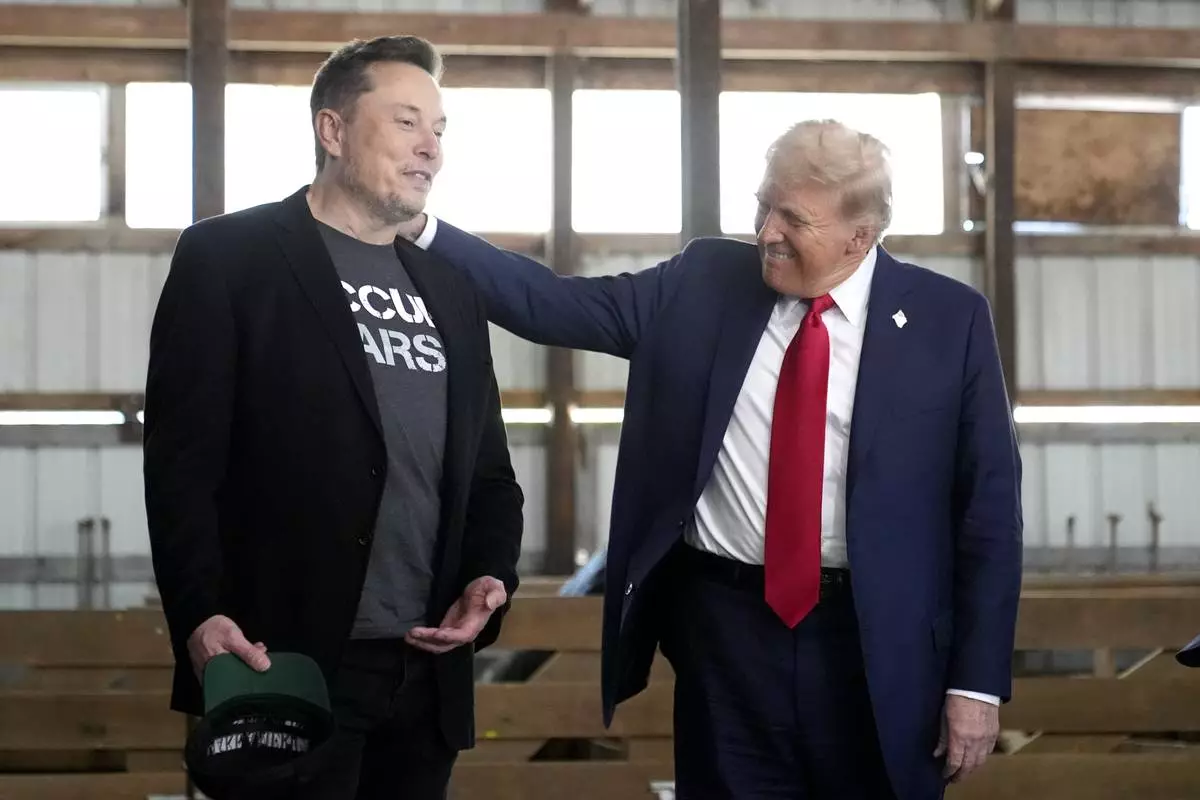
FILE - Tesla and SpaceX CEO Elon Musk, left, and Republican presidential nominee former President Donald Trump attend a campaign event at the Butler Farm Show, Oct. 5, 2024, in Butler, Pa. (AP Photo/Alex Brandon, File)
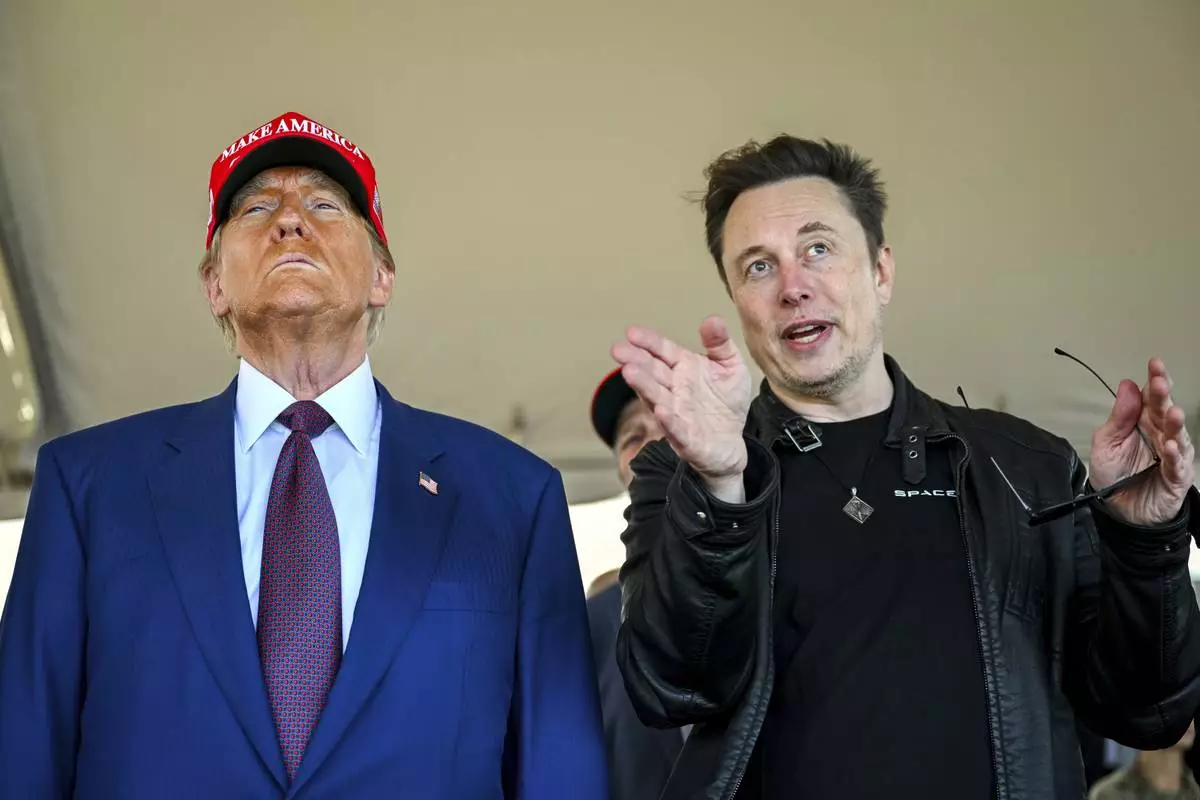
FILE - President-elect Donald Trump listens to Elon Musk as he arrives to watch SpaceX's mega rocket Starship lift off for a test flight from Starbase in Boca Chica, Texas, Nov. 19, 2024. (Brandon Bell/Pool via AP, File)



